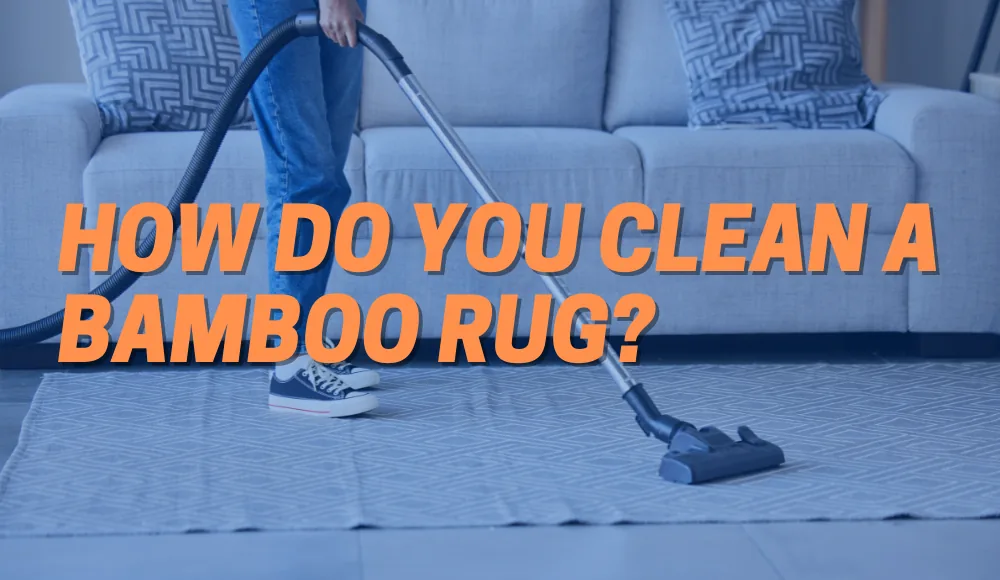Last updated on May 26th, 2024 at 06:24 am
In the hustle and bustle of daily life, it’s easy to overlook the importance of keeping our carpets clean. However, maintaining a regular vacuuming schedule is crucial not only for the appearance of our homes but also for our health and well-being. So, how often should you vacuum your carpet? Let’s delve into this question and explore the various factors that influence vacuuming frequency.
Understanding Vacuuming Frequency
Factors Influencing Vacuuming Frequency
Several factors play a role in determining how often you should vacuum your carpet:
- Foot Traffic: High-traffic areas such as living rooms and hallways accumulate dirt and debris more quickly than low-traffic areas, necessitating more frequent vacuuming.
- Indoor Environment: Homes with pets, children, or individuals with allergies may require more frequent vacuuming to remove pet dander, dust mites, and other allergens.
- Type of Flooring: Carpeted floors tend to trap dirt and dust particles more effectively than hardwood or tile floors, requiring more frequent vacuuming.
- Living Space Size: Larger homes or apartments may require more time and effort to vacuum thoroughly, influencing how often you should vacuum.
- Seasonal Variations: During periods of high pollen or dust, such as spring or fall, more frequent vacuuming may be necessary to maintain indoor air quality.
Recommended Vacuuming Frequency
While there’s no one-size-fits-all answer to how often you should vacuum, here are some general guidelines to consider:
- Daily Vacuuming: In high-traffic areas or homes with pets, daily vacuuming may be necessary to keep carpets clean and allergen-free.
- Weekly Vacuuming: For average households with moderate foot traffic and no pets, vacuuming once a week is typically sufficient.
- Monthly Vacuuming: In low-traffic areas or homes with minimal dirt accumulation, monthly vacuuming may be adequate for maintaining carpet cleanliness.
Health Benefits of Regular Vacuuming
Regular vacuuming offers numerous health benefits, including:
- Allergen Reduction: Vacuuming helps remove allergens such as dust mites, pollen, and pet dander, improving indoor air quality and reducing allergy symptoms.
- Prevention of Mold and Mildew: Vacuuming removes moisture and prevents the buildup of mold and mildew, which can thrive in dirty carpets.
- Pest Control: Regular vacuuming helps eliminate pests such as fleas and bed bugs, reducing the risk of infestations.
Consequences of Inadequate Vacuuming
Failure to vacuum regularly can lead to several undesirable consequences:
- Deterioration of Indoor Air Quality: Accumulated dirt, dust, and allergens can degrade indoor air quality, exacerbating respiratory issues and allergies.
- Increased Wear and Tear: Dirt and debris trapped in carpets can cause fibers to break down over time, leading to premature wear and tear.
- Pest Infestations: Neglected carpets provide an ideal breeding ground for pests such as fleas and dust mites, posing health risks to occupants.
Are Silk Rugs Durable? [Unveiling the Truth Behind Luxury and Longevity]
Vacuuming Tips and Best Practices
To maintain a clean and healthy home environment, consider the following tips:
- Invest in a High-Quality Vacuum Cleaner: Choose a vacuum cleaner equipped with HEPA filters and powerful suction capabilities to effectively remove dirt and allergens from carpets.
- Use Proper Vacuuming Technique: Vacuum in overlapping passes, especially in high-traffic areas, to ensure thorough cleaning and removal of embedded dirt.
- Empty Vacuum Bag or Canister Regularly: A full vacuum bag or canister reduces suction power and diminishes cleaning efficiency, so empty it regularly.
- Rotate Furniture and Rugs: Periodically move furniture and rugs to prevent dirt and debris from accumulating in hidden areas beneath them.
- Spot Clean Spills Promptly: Address spills and stains immediately to prevent them from setting into the carpet fibers and becoming more challenging to remove.
Signs You Need to Increase Vacuuming Frequency
Keep an eye out for the following signs that indicate you may need to vacuum more frequently:
- Visible Dirt and Debris: If you notice dirt and debris accumulating on the surface of your carpet, it’s time to vacuum more often.
- Persistent Odors: Lingering odors, especially in high-traffic areas, suggest the presence of dirt and bacteria that require more frequent vacuuming.
- Increased Allergy Symptoms: If allergy symptoms worsen or persist despite other interventions, inadequate vacuuming may be to blame.
Best Rugs for Home Office [For Your Workspace Style and Comfort]
Choosing the Right Vacuum Cleaner
When selecting a vacuum cleaner for frequent use, consider the following factors:
- Type of Flooring: Choose a vacuum cleaner designed specifically for carpeted floors to ensure optimal cleaning performance.
- Features and Accessories: Look for features such as adjustable suction settings, brush attachments, and HEPA filters to enhance cleaning effectiveness.
- Durability and Reliability: Invest in a well-built vacuum cleaner from a reputable brand known for durability and reliability.
The Impact of Flooring Material on Vacuuming Frequency
The type of flooring material also influences how often you should vacuum:
- Carpeted Floors: Carpets trap dirt and debris more effectively than hardwood or tile floors, requiring more frequent vacuuming to maintain cleanliness.
- Hardwood or Tile Floors: While hardwood and tile floors are easier to clean than carpets, regular vacuuming is still necessary to remove dust and debris from cracks and crevices.
Can Over-Vacuuming Damage Carpets?
While frequent vacuuming is essential for maintaining carpet cleanliness, excessive vacuuming can potentially damage carpet fibers over time. To prevent damage, avoid using overly aggressive vacuum settings and ensure that your vacuum cleaner is well-maintained and in good working condition.
Maintaining a Clean Home Between Vacuuming Sessions
In addition to regular vacuuming, there are several strategies you can employ to keep your home clean between vacuuming sessions:
- Implement a No-Shoes Policy: Encourage family members and guests to remove their shoes before entering the house to prevent dirt and debris from being tracked onto carpets.
- Use Entryway Mats: Place entryway mats at all entrances to trap dirt and moisture from shoes before it reaches your carpets.
- Regular Dusting and Sweeping: Dusting surfaces and sweeping hard floors help minimize the amount of dirt and debris that can accumulate on carpets.
Expert Data Comparison Table
Here’s a comparison table highlighting the recommended vacuuming frequency based on household factors:
| Household Factor | Recommended Vacuuming Frequency |
|---|---|
| High Foot Traffic | Daily |
| Pets | Daily to Weekly |
| Allergy Sufferers | Daily to Weekly |
| Low Foot Traffic | Weekly to Monthly |
| Small Living Space | Weekly |
| Large Living Space | Weekly to Bi-Weekly |
| Seasonal Allergies | Weekly to Bi-Weekly |
Conclusion
Maintaining a regular vacuuming schedule is essential for preserving the cleanliness and longevity of your carpets. By understanding the factors that influence vacuuming frequency and implementing best practices for carpet care, you can create a clean and healthy home environment for you and your family.
Remember, the key to effective vacuuming lies in consistency and attention to detail. By prioritizing regular vacuuming and adopting proactive cleaning habits, you can enjoy a cleaner, healthier home for years to come.


